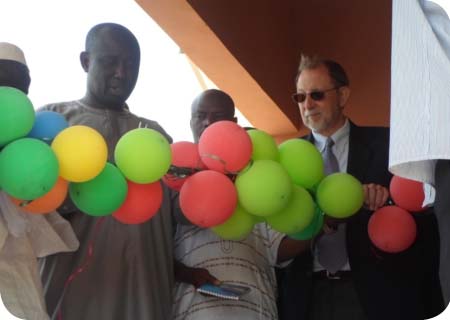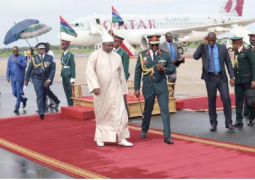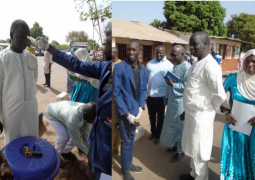
The five-year project constructed toilets and water facilities in Kartong fish landed site.
The handing over ceremony was attended by the US diplomat, a representative of Rhode Island, the regional governor, district authorities, ward councilors and a cross-section of the communities.
Speaking at the ceremony, Fisheries and Water Resources Minister Mass Axi Gai said the handing over of the WASH facilities to the oyster and fishing communities of Kartong was a welcome development, adding that the Gambia government had given priority attention to the development of sustainable management of the fisheries sector.
The objective of the fisheries sector is to increase food self-sufficiency and security, and a healthy population, as well as to enhance employment opportunities for national development, increased revenue generation and foreign exchange earnings and attain national, social and economic development, he added.
Minister Gai further said the provision of water and sanitation facilities to these communities was very vital and a priority achievement consistent with the Programme for Acceleration Growth and Employment (PAGE) and by extension the Millennium Development Goals and Vision 2020.
He noted that the water and sanitation component of the USAID/BaNaFaa project was incorporated in 2011 to support needed water and sanitation activities linked to the artisanal fishery and community fishery centres and oyster landing sites.
He added that WASH activity was out to improve water supply and sanitation in approximately seven oyster landing and processing sites, to improve sanitary handling of seafood supply and to enhance the entrance of high quality seafood both in the local and processing establishments.
Famara Dampha, director of fisheries and water resources, said the occasion marked another history of the good cordial relations existing between the US and The Gambia.
According to Mr Dampha, the overall objective of the project was to improve the livelihoods of women oyster harvesters of the seven Gambia coastal communities of Kamalo, Old Jeswang, Brufut, Tanji, Sanyang, and Kartong with the framework of PAGE.
He said the beneficiaries were also trained in sanitation and hygiene, a knowledge of which will be utilised during the operation and management of the facilities.
Michael Arrieta, Charge d’ Affairs of the US Embassy in Banjul, said the facilities would help to protect the health and safety of those who catch fish and those who consume it.
He said the US Embassy applauded all that have put in concerted efforts to the achievement of a successful project over the years.
The Gambia, particularly Kartong, would be benefitting from the new facilities for many years to come.
Karen Kent, of University of Rhode Island, said this was a site where food for the community, the country, the West Africa Region and export market is landed, handled and processed.
She said lack of hygiene in this site is like lack of hygiene for the whole community, the country and the region, especially for Kartong, which is a border area between the two countries.
She said with the help of USAID/BaNaFaa project the oyster, harvesters and fishermen at Kartong would be able to manage their fisheries more sustainable.



